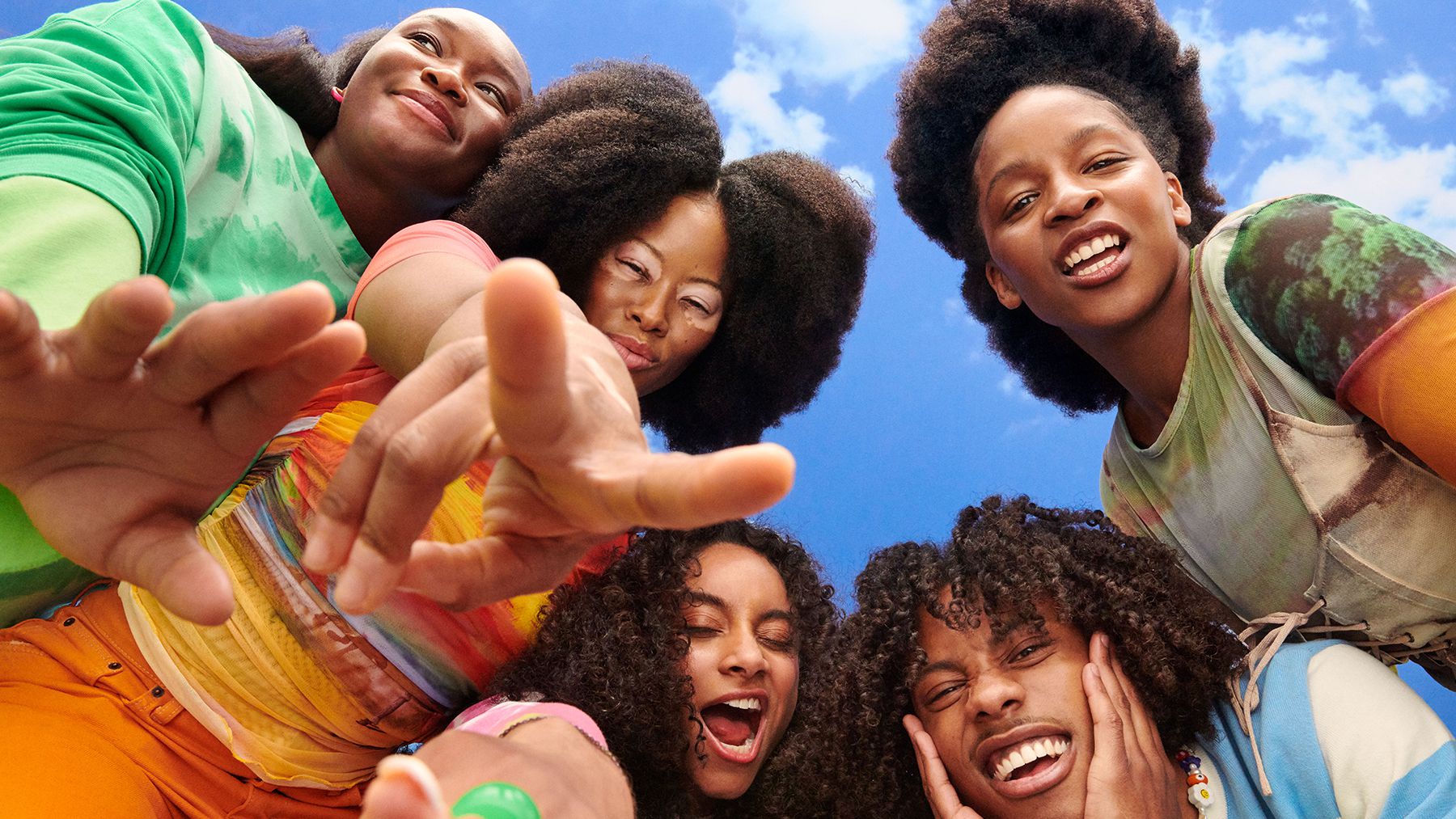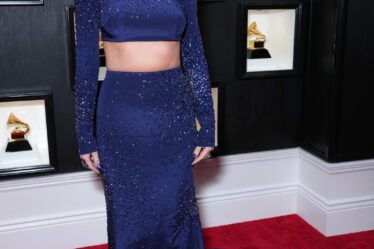
Shortly after Tendai Moyo and Ugo Agbai launched their hair extensions start-up Ruka, Serena Williams came calling.
Williams’ stylist Lorraine Dublin reached out while struggling to find high quality hair extensions to match the tennis star’s specific hair texture at short notice, Moyo said. Williams ended up wearing one of Ruka’s ponytails during her Wimbledon match earlier this year.
It was a coup for the digital direct-to-consumer brand, which hit the market in January, selling a range of hair extensions and wigs to cater to the full variety of different hair textures that exist within the curly, kinky and coily spectrum.
“We call ourselves the Fenty Beauty of hair extensions, because of that texture range,” said Moyo. “When you look at hair extensions, it’s previously been Eurocentric textures mostly … what we pride ourselves on is texture matching.”
An endorsement from one of the most famous athletes on the planet was only the start. Ruka, which has raised £1.7 million ($1.9 million) in funding to date, saw its six-week pop-up in London’s Stratford Westfield shopping centre extended to a three-month run. Actresses Keke Palmer and Gabrielle Union, and British runner Dina Asher-Smith have also embraced the brand. Most recently, it’s nabbed a counter at Selfridges’ beauty hall, set to open on Oct. 13, and is on track to hit £1.6 million in sales by the end of the year.
“When it comes to underserved markets, underserved communities, we know that innovation is key,” said Nicole Crentsil, a Ghanaian-British entrepreneur and angel investor in Ruka, who added, “What really attracted me about Ruka was their desire to innovate in a very tired and very same-y space, in an almost Glossier-esque type mindset of: why don’t we try to build products that actually work for Black women?”
Ruka is one of a flurry of new brands shaking up a stagnant wig and extensions space, where fragmented supply chains and distribution, plus a lack of affordable and high-quality ethical products, make for a clunky purchasing experience. London-based Ruka is joined by US-based labels like Radswan, Parfait and Upgrade, aiming to leverage technology to create brands that specifically serve Black women and textured hair types.
Moment of Opportunity
Over the past two decades, the natural hair movement and safety concerns around chemical products have propelled a growing number of women to swap at-home chemical relaxers for products that enable them to wear their hair naturally. Sales of chemical relaxers have plummeted about 40 percent over the last decade in the US, according to Mintel, with many turning to protective styles like wigs and extensions as a non-harmful styling solution.
It’s hard to accurately estimate the size of the wigs and extensions market due to an opaque supply chain and fragmented, largely offline distribution network, say experts, but Mintel forecasts Black consumers in the US to spend $1.9 billion on hair products annually by 2025, up from $1.7 billion in 2020.
These upstart hair extension brands remain a small niche within a vast multi-billion dollar market. Major beauty brands, largely run by white men, have historically been slow to release products catering to women of colour.
Big beauty companies have stepped up investment in the textured hair care category in recent years, but much of that spending has focused on “wet” hair products, such as shampoos, conditioners and styling products, as opposed to “dry” extensions and wigs. Beauty giants like Unilever and L’Oréal catered to textured hair through acquiring hair care brands like SheaMoisture and Carol’s Daughter respectively.
The innovation and investment opportunity in the textured extensions and wigs space, however, remains largely untapped. Often products are sold through boutique retailers or local salons that that lack an online presence. Black vendors rarely have ownership over the supply chain.
“It’s just recently that you’ve seen this influx of women and Black women really trying to renovate the [extensions] space,” said Simone Kendle, co-founder and CMO at Dallas, Texas-based wig start-up Parfait, which was founded in 2020 and launched in April this year.
The broader hair extensions category is starting to get more attention from the beauty industry’s biggest players. Last year, LVMH-backed private equity firm L Catterton acquired a majority stake in Big Industry Group, a beauty company that specialises in the hair extensions category and counts direct-to-consumer brands such as Halocouture, Beauty Works, Luxy and Glam Seamless among its portfolio. Fashion blogger Freddie Harrel’s New York-based startup Radswan, which sells synthetic wigs, clip-ins and accessories for afro-textured hair, launched as part of beauty startup accelerator programme Founders Factory, backed by L’Oréal.
These brands have also become more sophisticated thanks to technological innovations that aid in product development.
Parfait, for example, uses AI and machine learning to create direct-to-consumer customised wigs for shoppers. With just four customer-uploaded selfies to its website, Parfait can understand the head circumference of the shopper to create a custom cap and lace tint that matches their skin tone, co-founder and CEO Isoken Igbinedion said, adding most wigs will arrive within a week of purchase. To add a layer of human touch, stylists are on hand to advise on orders and offer shoppers free consultations.
Parfait raised $5 million in seed funding, counting the likes of Williams, rapper Chamillionaire and former Beats by Dre exec Omar Johnson among its investors. It is also launching a B2B arm of the brand, in a bid to help hairstylists more easily serve their clients with better-fitting wigs.
“We’re in an era where technology is really making the lives of everyday people much easier … but we’re seeing that little attention is being paid to solve problems for marginalised communities,” said Igbinedion. “That problem is deeply felt by Black women, especially in the beauty industry.”
Marketing to the Masses
For Ruka, the Selfridges partnership marks its first permanent foray into physical retail. It will be a marketing boon for the brand, which will enjoy prime real estate in the department store’s beauty hall. Selfridges, too, stands to benefit significantly from the partnership, as it looks to better cater its offering to more diverse hair types and textures.
“Selfridges’ offering for Black and textured hair has been a huge focus for the beauty buying team this year,” said beauty buying manager Emeline Ancelot. While the store has recently brought on brands designed for textured hair like Bread, Dizziak and Afrocenchix, Ruka will be the store’s first dry hair brand aimed at Black customers.
“The industry is seeing a surge of brands coming through within this space, and we know that as a business we have only just skimmed the surface,” she added.
Ruka’s Moyo also wanted the brand to embrace accessibility and functionality, including a range of tutorials and guides on its website. At the Selfridges’ counter, one-to-one consultations will bring this education element to life, she said.
“We really focused on treating everyone like they were starting from square zero when it comes to hair,” she said.
The brand has future plans to experiment with more popups in cities like Manchester or Bristol. Longer term, Moyo wants to expand in Africa, where the brand is already seeing demand for their products. Meanwhile, Ruka’s synthetic hair options are due to launch by the end of the year.
“People really want to invest in a brand within the hair space that is backed by innovation, and not just the classic [branding] facelift,” said Moyo.



